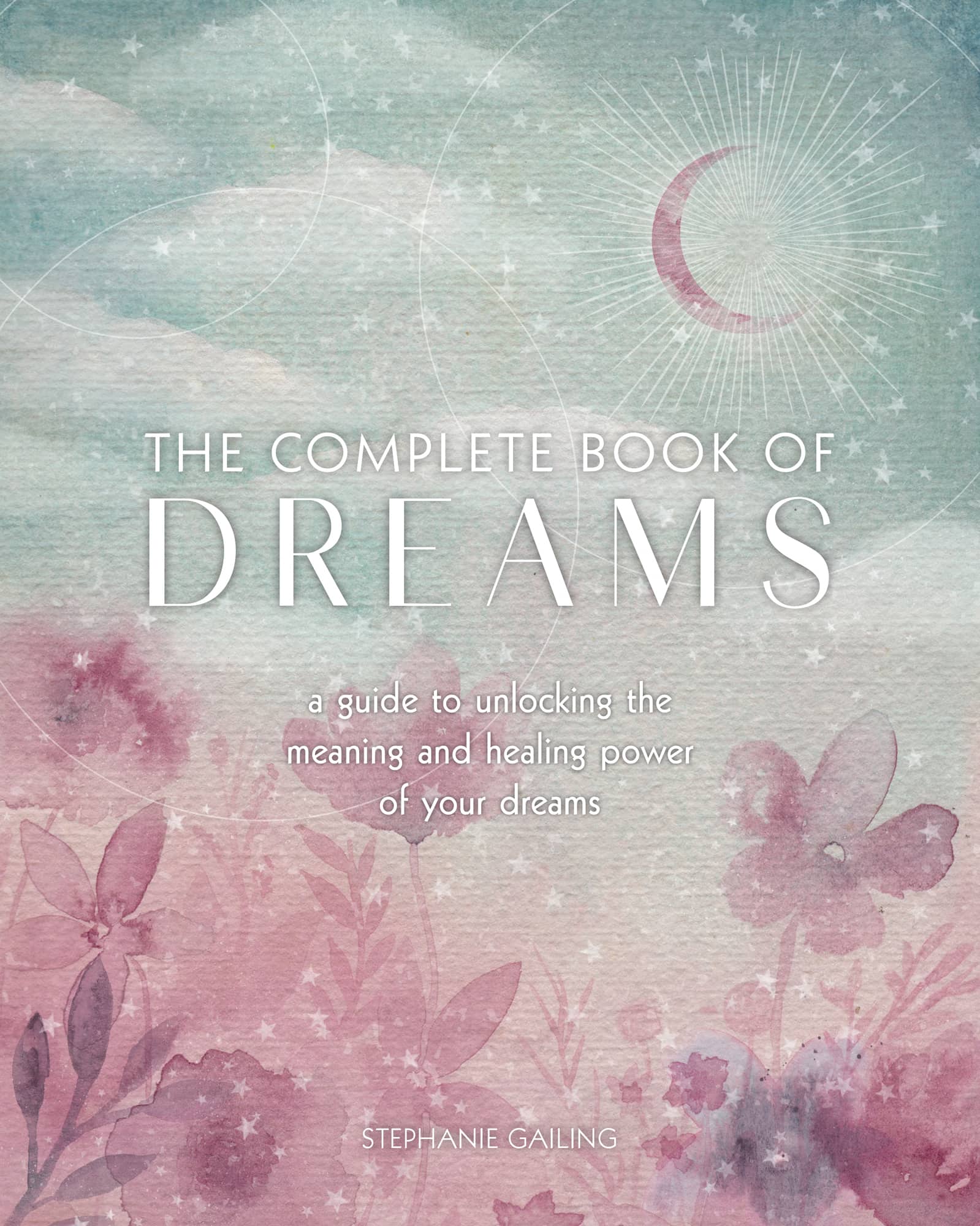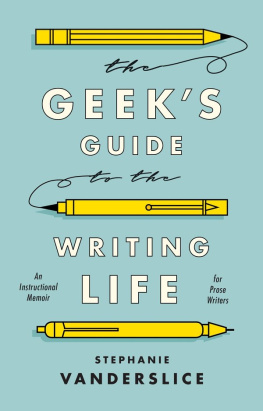Stephanie Gailing - The Complete Book of Dreams
Here you can read online Stephanie Gailing - The Complete Book of Dreams full text of the book (entire story) in english for free. Download pdf and epub, get meaning, cover and reviews about this ebook. year: 2020, publisher: Wellfleet Press, genre: Religion. Description of the work, (preface) as well as reviews are available. Best literature library LitArk.com created for fans of good reading and offers a wide selection of genres:
Romance novel
Science fiction
Adventure
Detective
Science
History
Home and family
Prose
Art
Politics
Computer
Non-fiction
Religion
Business
Children
Humor
Choose a favorite category and find really read worthwhile books. Enjoy immersion in the world of imagination, feel the emotions of the characters or learn something new for yourself, make an fascinating discovery.

- Book:The Complete Book of Dreams
- Author:
- Publisher:Wellfleet Press
- Genre:
- Year:2020
- Rating:3 / 5
- Favourites:Add to favourites
- Your mark:
- 60
- 1
- 2
- 3
- 4
- 5
The Complete Book of Dreams: summary, description and annotation
We offer to read an annotation, description, summary or preface (depends on what the author of the book "The Complete Book of Dreams" wrote himself). If you haven't found the necessary information about the book — write in the comments, we will try to find it.
The Complete Book of Dreams — read online for free the complete book (whole text) full work
Below is the text of the book, divided by pages. System saving the place of the last page read, allows you to conveniently read the book "The Complete Book of Dreams" online for free, without having to search again every time where you left off. Put a bookmark, and you can go to the page where you finished reading at any time.
Font size:
Interval:
Bookmark:


DREAMS
a guide to unlocking the meaning and healing power of your dreams
STEPHANIE GAILING


Text 2020 by Stephanie Gailing
First published in 2020 by Wellfleet Press, an imprint of The Quarto Group 142 West 36th Street, 4th Floor, New York, NY 10018, USA T (212) 779-4972 F (212) 779-6058 www.QuartoKnows.com
All rights reserved. No part of this book may be reproduced in any form without written permission of the copyright owners. All images in this book have been reproduced with the knowledge and prior consent of the artists concerned, and no responsibility is accepted by producer, publisher, or printer for any infringement of copyright or otherwise, arising from the contents of this publication. Every effort has been made to ensure that credits accurately comply with information supplied. We apologize for any inaccuracies that may have occurred and will resolve inaccurate or missing information in a subsequent reprinting of the book.
Wellfleet titles are also available at discount for retail, wholesale, promotional, and bulk purchase. For details, contact the Special Sales Manager by email at or by mail at The Quarto Group, Attn: Special Sales Manager, 100 Cummings Center Suite 265D, Beverly, MA 01915 USA.
Digital edition: 978-0-76036-790-2
Softcover edition: 978-1-57715-213-2
Library of Congress Control Number: 2020939639
Publisher: Rage Kindelsperger | Creative Director: Laura Drew | Managing Editor: Cara Donaldson Senior Editor: John Foster | Cover Design: Sosha Davis | Interior Design: Kate Smith | Illustrations by Sosha Davis with the exception of pages Shutterstock
This book provides general information on various widely known and widely accepted theories on sleep and dream interpretation. However, it should not be relied upon as recommending or promoting any specific diagnosis or method of treatment for a particular condition, and it is not intended as a substitute for medical advice or for direct diagnosis and treatment of a medical condition by a qualified physician. Readers who have questions about a particular condition, possible treatments for that condition, or possible reactions from the condition or its treatment should consult a physician or other qualified health-care professional.
What did you dream last night? It may have been illuminating or confounding, captivating or relatively uninspiring. Perhaps it was a joyous adventure like none other, or a scene so upsetting it rattled you to the core. It may have included people, places, and events that were all too familiar, or those that were seemingly bizarre and unrecognizable. Likely, it defied your ordinary perception of how space and time operate, leaving you wondering just from where this symphony of mesmerizing visions emerged. Assuming, that is, if you remembered your dreams. On par with the mystery that surrounds what they mean and where they come from is the question of where they go and why they seem to dissolve so quickly. Owing to their evanescent quality, some people even believe that they dont have them at all. However, we all dream.
It is one of the things that unites us, an activity common to all of humanity. What also unites us is our shared interest in dreams, this enigmatic subject that has intrigued people throughout history. For as much as dreams are a phenomenon that occurs when we sleep, they are not necessarily cordoned off from our waking experiences. People have continually looked to their dreams for insights on how to navigate the opportunities and challenges that comprise their daily lives. We only need to look to language to observe this interplay. In addition to signifying a series of thoughts, images, or emotions occurring during sleep, the Merriam-Webster dictionary notes that the word dream also has numerous other meanings. We use it when we want to signify something notable for its beauty, excellence, or enjoyable quality, or a strongly desired goal or purpose, or even something that fully satisfies a wish. As such, as mystical and enigmatic as our nighttime dreams are, theres a perception that they are somehow akin to our daytime visions, aims, and desires. Before we explore how to tap into the benefits that our dreams can offer us, lets gain a historical perspective that will allow us to see how they were viewed throughout time. Doing so is not only fascinating, but provides us with access to a spectrum of understanding as we quest to know more about what dreams are and what they mean.
Since antiquity, dreams have maintained a very important role in cultures across the globe, extolled for their visionary wisdom. In fact, as far back as the ancient Sumerian civilization, dreams served as guides for important decision making. For example, in clay relics dating from about 2125 BCE, we find cuneiform inscriptions recounting dreams experienced by Gudea, the ruler of the Mesopotamian city-state of Lagash. In these prophetic oneiric visions, the king received not only encouragement to build E-ninnu, a revered temple dedicated to the god Ninirsu, but also design details that he then used to construct the sacred site.
Another famous dream series that dates to this historical period is of those featured in The Epic of Gilgamesh. Prized as the oldest extant piece of literature, the tale includes numerous action-guiding dreams had by the Mesopotamian king Gilgamesh. It is inscribed on clay tablets in the Library of Ashurbanipal, dating from the seventh century BCE, which also feature other carvings detailing the interpretation of numerous dream symbols. Of course, when we look to ancient wisdom, we often turn toward the Egyptians, who themselves held a high regard for dreams. A prized example of oneiric literature is the Ramesside Dream Manual, found in the famed Chester Beatty Papyri (c. 12501100 BCE). It contains more than one hundred dreams, their explanations, and a qualifier as to whether the dream is considered to be a good or bad one.

The Oneiric Language of Dreams
As you read this book, youll come across words like oneiric and oneirology. The former signifies something that pertains to dreams or dreaming, and the latter, the scientific study of dreams. These words derive from the Greek oneiros, which means to dream; in Greek mythology, the gods of dreams including Hypnos, Phobetor, and Phantasos were collectively referred to as the Oneiroi. Dream interpreters were classically known as oneirocritics, with one of the most famous ancient dream books, dating from the second century CE, entitled Oneirocritica.

Everyone Dreams
How often have you heard someone say that they dont dream? Perhaps youve said this as well, considering yourself a person who never experiences the nighttime reverie of oneiric visions. Well, as it turns out, its thought that everyone dreams; its just that some people dont remember having them when they awaken. So, dont worry with intention and practice (including some of the tips featured in ), you, too, can have a dream life.
Font size:
Interval:
Bookmark:
Similar books «The Complete Book of Dreams»
Look at similar books to The Complete Book of Dreams. We have selected literature similar in name and meaning in the hope of providing readers with more options to find new, interesting, not yet read works.
Discussion, reviews of the book The Complete Book of Dreams and just readers' own opinions. Leave your comments, write what you think about the work, its meaning or the main characters. Specify what exactly you liked and what you didn't like, and why you think so.







